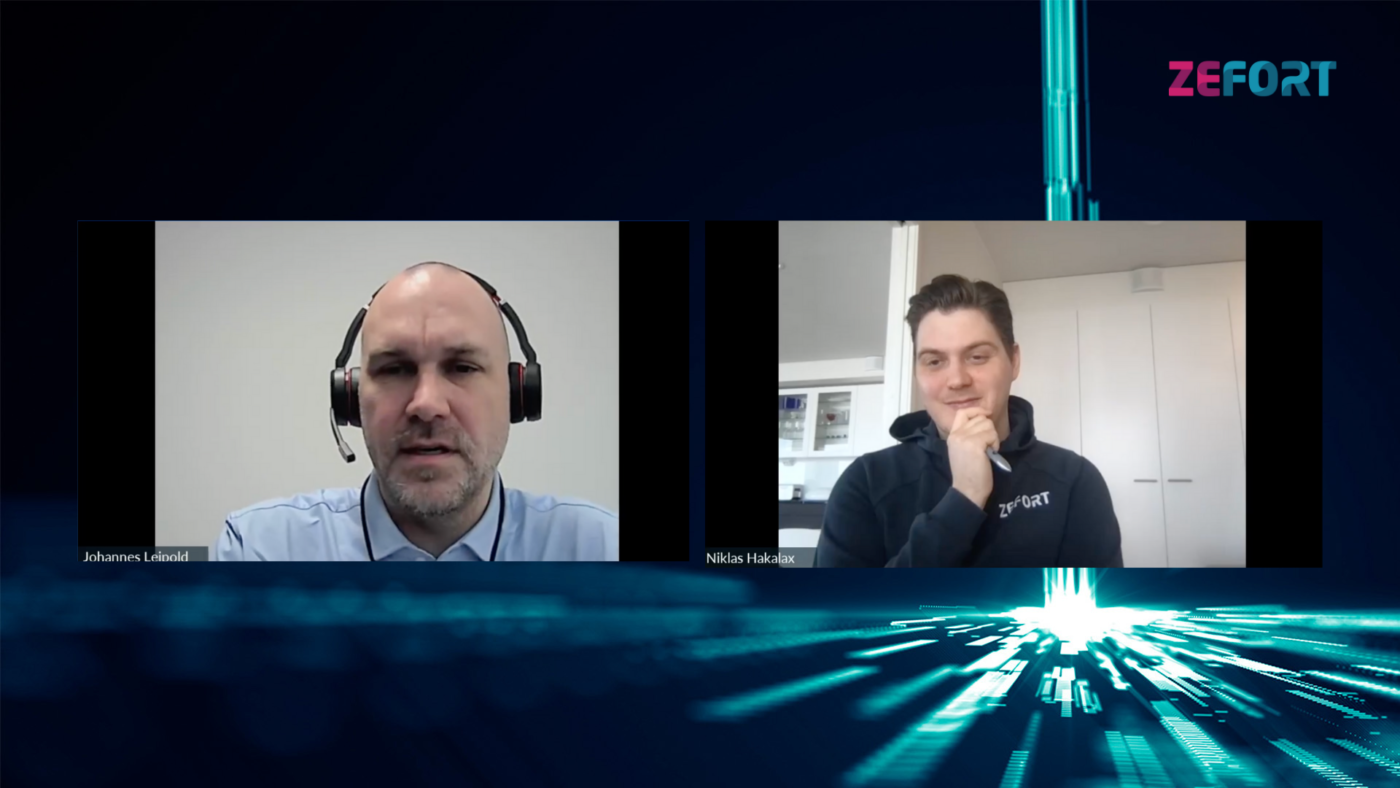We talked with Johannes Leipold from Norlys Energy Trading A/S about making legal teams’ work more efficient with legal technology. Here’s a recap of the discussion and key insights from Johannes. You can watch the webinar recording at the bottom of this post.
As the Head of Legal at Norlys Energy Trading A/S, Johannes has a front-row seat to shaping the future of a newly-founded, quickly growing international company. Founded in August 2020, Norlys today employs nearly 120 professionals and continues its rapid growth.
“Today, the word efficiency is on top of everything. Legal teams, too, have to work quickly, they have to be lean and agile and adhere to certain commercial metrics.” – Johannes Leipold
At Norlys, the explosion of employees – which goes hand in hand with the explosion of business – means increasing demand for legal services, such as contract management. However, Johannes’ plan is to keep the legal team very small – with the help of legal technology.
What is legal technology?
According to Johannes, legal technology is “any software or IT system that helps make legal teams’ work easier”. While Johannes considers that legal technology is still at its very beginning, he also sees that “legal tech is here to stay” – the solutions developed today and tomorrow will gradually become part of the everyday lives of legal teams in the future.
One of the most interesting development areas is AI, artificial intelligence. While AI is not yet mature enough for drafting contracts, for example, it can already be useful for analyzing contracts and detecting strange contract clauses that legal teams should investigate further.
Johannes feels that for major advancements in AI, and legal tech in general, legal teams and legal tech solution developers should work more closely together to discover the possibilities of technology and the actual use cases needed by lawyers.
How to get started with legal technology?
According to Johannes, the key challenges for getting started with legal technology are justifying the costs and managing changes to existing legal processes.
As all company functions, legal teams have to also justify the costs and make the business case for introducing a new system. To do this, you really have to drill down to the proposed benefits of the solution: Will it actually save our working hours? Will improvements in process speed and efficiency affect your bottom line? Are the benefits worth any possible trade-offs?
If you are working in an established company with existing processes and tools, making changes to those processes is always difficult. For example, eSignatures are great and convenient, but they might complicate your existing approval processes? How can you get everyone involved in your processes onboard with the new solution?
According to Johannes, you can start by looking into your existing processes and understanding what is important to you. You could take a data-driven approach: what data you process and how you want it to flow in your company. Or, you could take a process-based approach; you map your current processes and find a solution that fits those steps.
What’s most important, though, is staying in the driver’s seat: do not let the legal tech solution take control of your data and processes. For example, if you decide to use a service provider later, it should be easy to migrate your data to the new system with low effort.
What if you could start from scratch with legal tech?
When Norlys was founded in 2020, the company had no existing legal tools and processes. The company made an early decision to be fully cloud-based in its IT infrastructure to enable scaling up the company and increasing its market share.
Norlys is also driven by a high level of ambition:
“We want to be in the Formula 1 of energy trading – we strive to be the number one team and excel in every area, including contract management” – Johannes Leipold
From a contract management perspective, Johannes decided to introduce a new way of thinking into the company – making everyone a contract manager.
Instead of having the legal function to govern all contract-related work, Norlys decided to spread out the contract management to different subject matter experts in the organization. For example, while a gas energy trading expert knows the ins and outs of trading practices and related agreements, a small team of generalist legal counsels simply cannot onboard all the required expertise and keep it up-to-date.
To achieve this, Norlys decided on selecting Zefort as its contract management tool. Zefort provides the team sharing and joint contract management features Norlys was looking for.
So far, Johannes’ strategy is working: the company has grown from 12 to nearly 120 employees and the legal team is only 3,5 persons strong.
Staying ahead in the future
Johannes returns to his initial arguments: legal tech is at its very beginning but it is here to stay. For Norlys, this means keeping an active eye on the latest developments in the field and participating in an active dialogue with the service providers.
“We look for partners who are in it to win it – companies that want to develop and win with us.” – Johannes Leipold
In Johannes’ opinion, customers of legal technology solutions can drive the development of the tools by giving feedback and insights that eventually help create services and features that solve the challenges of tomorrow.
Watch the webinar recording here:





